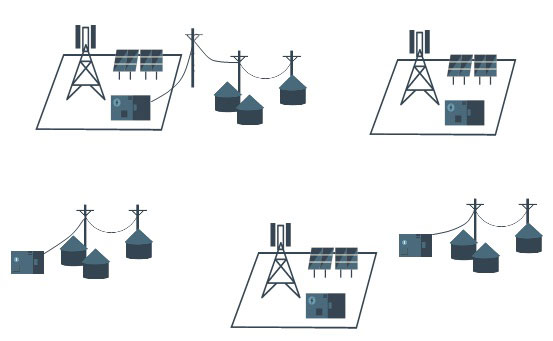An ESCO, an academic, and a telecom representative walked into a bank…
Bad jokes aside, last month the World Bank hosted its annual Energy Day and invited the GSMA to participate on a panel entitled “Electricity and Telecom Services: Realizing Synergies?” The panel brought together academic and industry experts to discuss the opportunity and challenges that exist in leveraging the mobile industry to support energy access.
The concept proposed by the World Bank built on many of the ideas first proposed in our 2010 report, Community Power: Using Mobile to Extend the Grid, including the use of a telecom tower as an anchor tenant for a 3rd party ESCO also serving the community. But the Bank’s concept went one step further clearly identifying a role for governments to play in unlocking the Community Power from Mobile opportunity. To suggest that this could be a game changer is an understatement.
To understand why we are excited about this lets recap the opportunity:
- The mobile network has surpassed the electricity grid and we estimate that there are 640,000 off-grid towers.
- Mobile networks and their towers require on-going maintenance and the presence of mobile towers in rural areas mean that there are highly qualified teams of technician and energy service companies (ESCOs) in the vicinity of off-grid or underserved communities.
- Thus it makes logical sense to leverage the presence of existing actors with experience managing decentralised generation sites to also drive improved energy access.

How can ESCo’s serving the mobile industry be used to serve neighbouring communities?
So what’s holding it back:
- Energy production is not the main expertise of mobile Operators & tower companies
- ESCOs that serve the mobile industry provide B2B services and not used to providing B2C services
- Who pays for the additional CAPEX involved
- Can an ESCO act as an Independent Power Producer while avoiding bureaucratic red tape
Bottom Line: A mechanism to attract existing ESCOs to serve off-grid communities would help improve the business case as long as it provides the proper incentives without heavily distorting the market dynamics.
What happens next?
We hope that the positive feedback given by the panel provides the World Bank to continue working on the concept and to solicit more feedback from mobile operators, ESCOs and NGOs working in the off-grid energy market.
For our part we plan to share and discuss the concept with our network of ESCOs, impact investors, mobile operators and tower companies to gain their feedback and pull together their recommendations.

